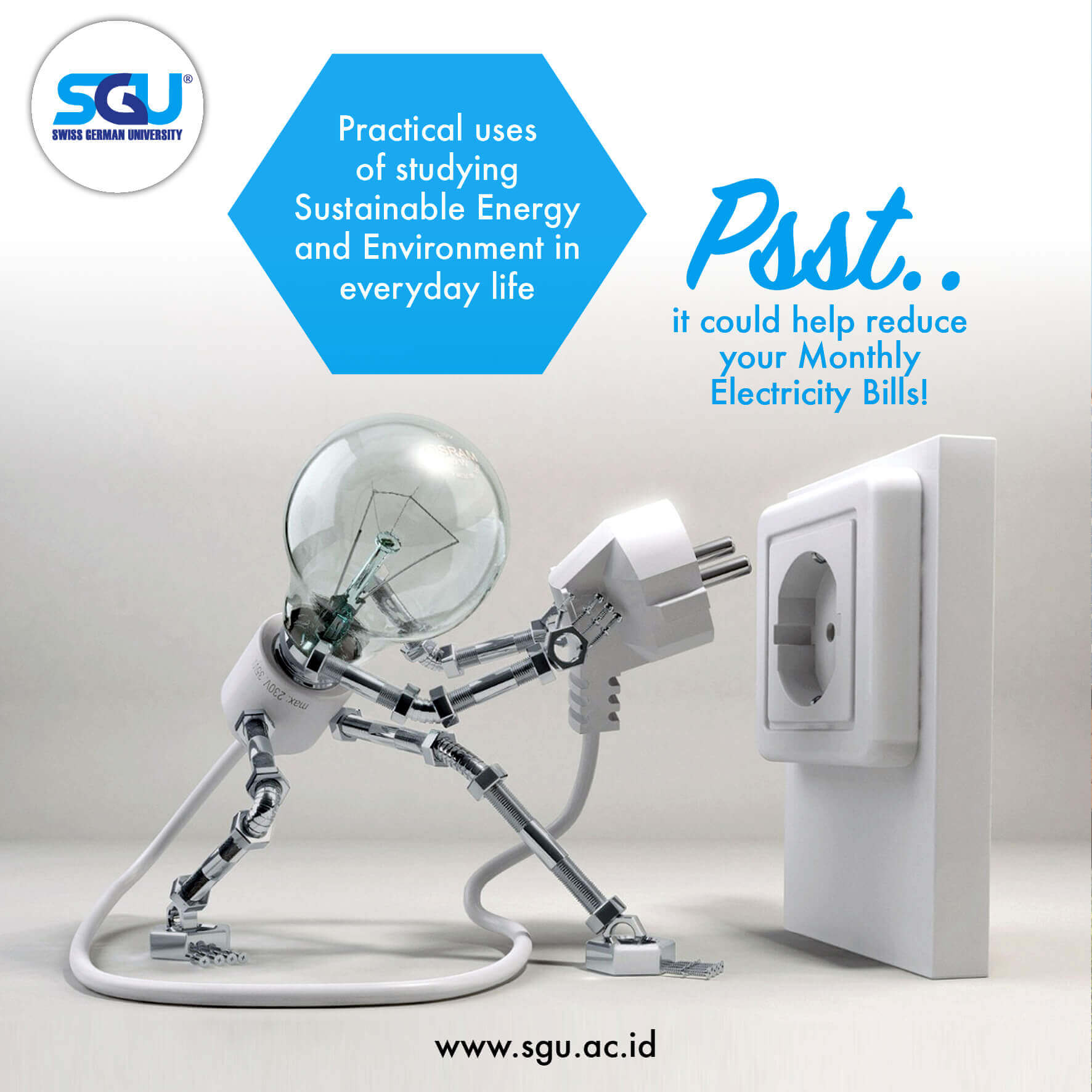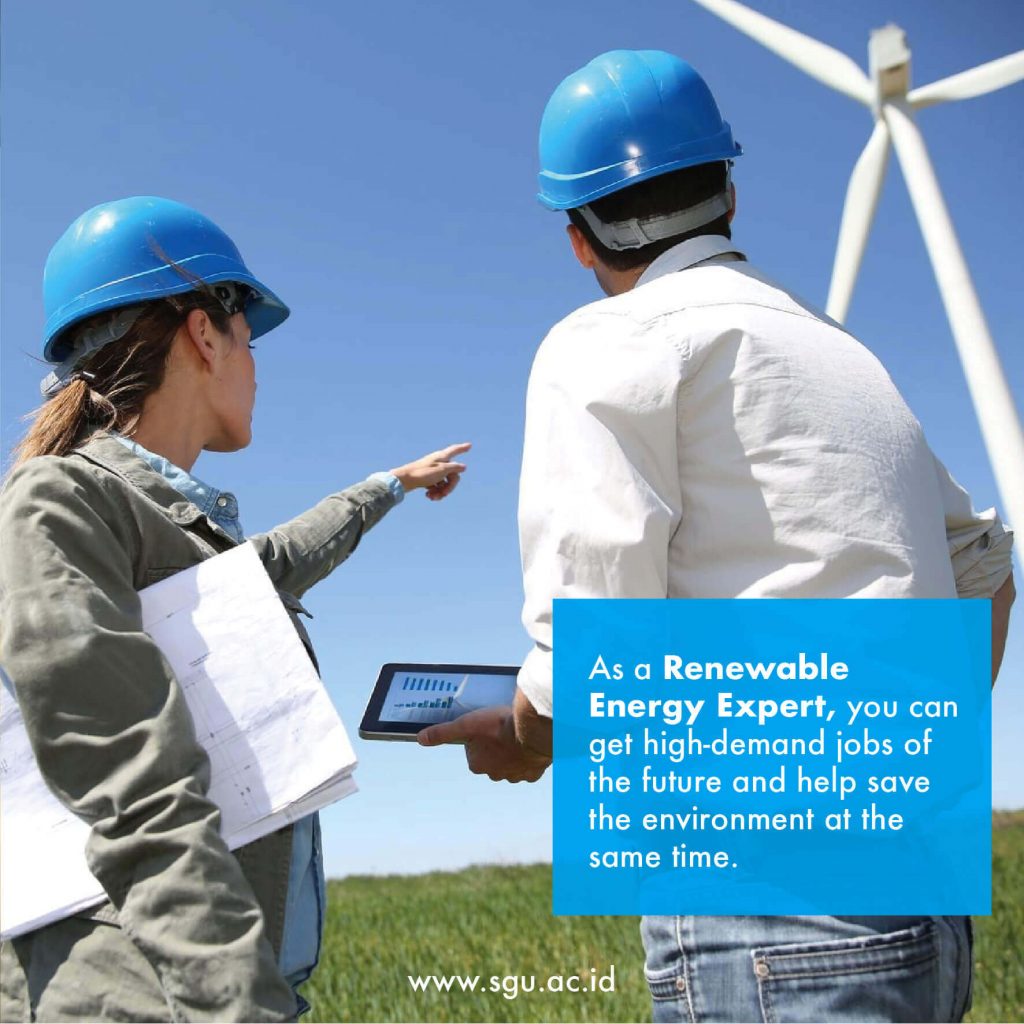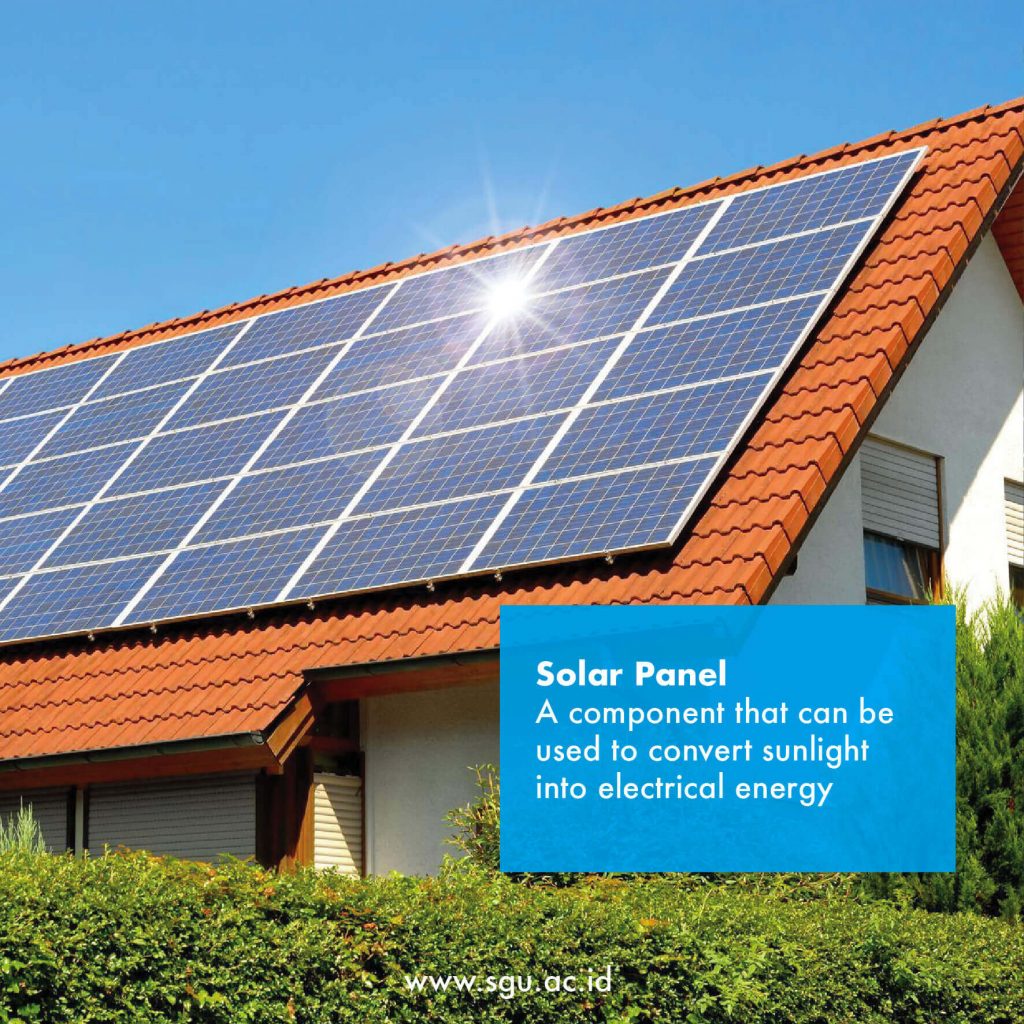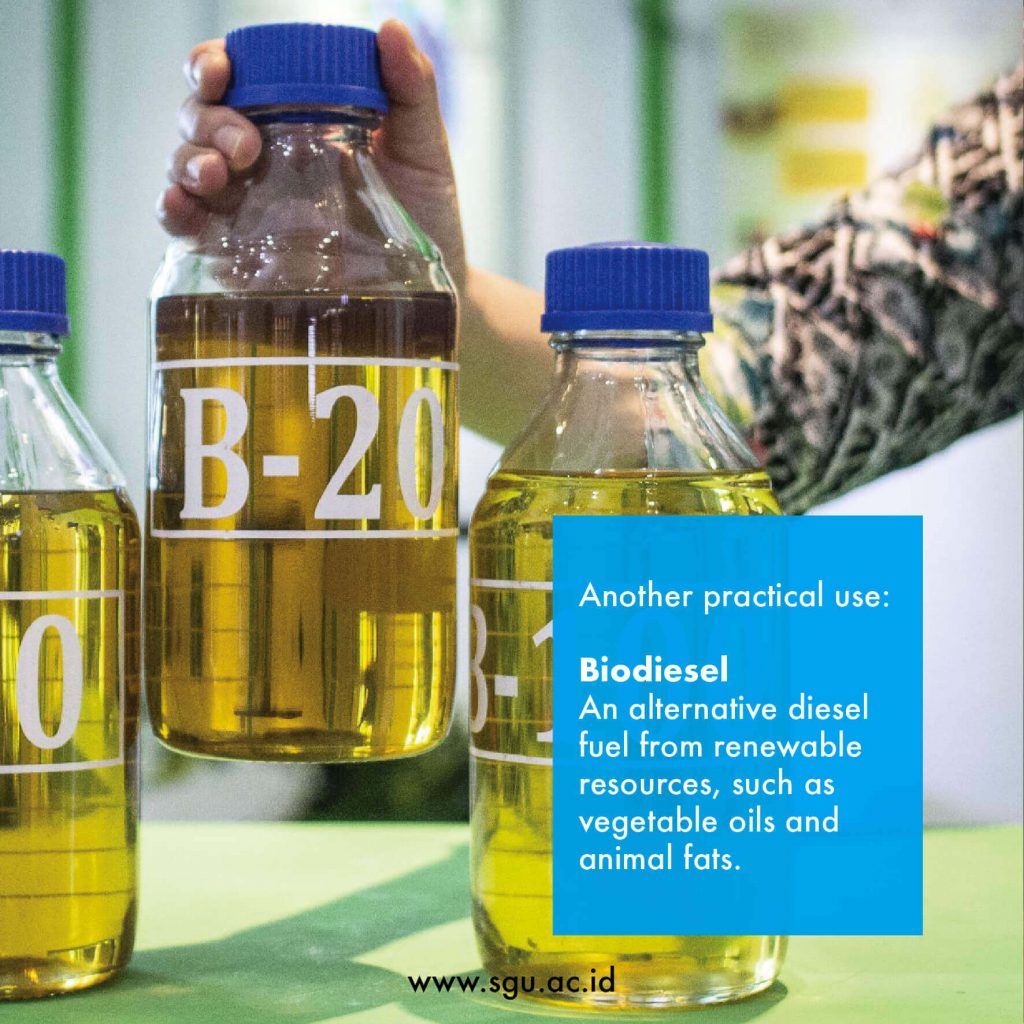
Practical Uses of Studying Sustainable Energy & Environment in Everyday Life
Our current world concern is how life can continue on a sustainable basis. This mainly refers to the fact that fossil fuels are predicted to run out in 2060 and the world temperatures continue to rise. Not to mention, this is also compounded by the fact that for the past centuries many industries are not environmentally friendly and contribute to harm the earth. Imagine what the future of our descendants will be like if the earth gets warmer, climate changes, fossil fuels run out. Life can become very uncomfortable.
Starting from this, the condition of the world in the future is getting more attention. Currently, many ways are being done in order to save the earth, many industries also compete to be able to produce products in environmentally friendly ways so as not to harm the earth. Industries that are starting to move more environmentally friendly include oil & gas industries, chemical and petrochemical industries, manufacturing industries, bioenergy industries (palm oil), and many more.
That is why many people nowadays start to study sustainable energy and environment.

Study sustainable energy and environment in Indonesia
What is sustainable energy?
Sustainable energy is a form of energy that is new and renewable such as food, vegetables, sunlight, wind, water, etc. We can use these energies to convert into new energy and help save the environment. In short, when studying Sustainable Energy and Environment, you will learn how to actively contribute to facing the world’s problems on a sustainable basis.
The field of sustainable energy usually falls under the scope of chemical engineering.
For those of you who are still confused about what to study, you can consider studying Sustainable Energy and Environment. It can be an opportunity because it will become an in-demand job in the future.
If you still have no idea about Sustainable Energy and Environment, try take a look at the practical examples we provide below:
Here are two practical examples uses in everyday life of Studying Sustainable Energy & Environment
Solar Panel
Solar panel is a component that can be used to convert sunlight into electrical energy. Currently, many people have started to use solar panels in their homes as a substitute for electricity. In Indonesia, there is currently the largest PLTS (Solar Power Plant), namely PLTS Likupang.
So why are people starting to switch to solar panels? There are several main reasons. Even though the initial setup of a solar panel may cost you a bit, in the future this will help you to reduce the monthly electricity bills because it relies on solar power. In addition, solar panels are also low maintenance, it is more economical. Another reason is that solar panels can help reduce greenhouse gas emissions. So, you can help the environment and cut the budget at the same time!
Biodiesel
An alternative diesel fuel from renewable resources, such as vegetable oils and animal fats.
In Indonesia, products can be found at gas stations called Biosolar. Pertamina is currently selling biodiesel with a mixture of 20% biodiesel (vegetable material) with 80% diesel fuel, which produces Biosolar B20. In the future, the Government is targeting to continue to increase the percentage of biodiesel to 30%, 50%, and so on until everything is replaced with 100% biodiesel.
Not only in Indonesia, Biodiesel itself is also sold abroad. This fuel is preferred because it helps reduce greenhouse gas emissions. In addition, it can also improve air quality and it is better for vehicle engines because of higher cetane.
You can study Sustainable Energy and Environment in Indonesia in order to contribute to producing the two examples of practical use above. Besides this will be in demand and you will also have an impact on society. SGU prepares young generations to face the world’s challenges in terms of sustainability through the Sustainable Energy and Environment study program, under the Chemical Engineering Department. SGU Sustainable Energy and Environment is the first and the only university in Indonesia offering a double degree program. You can get a sarjana degree from Indonesia, as well as a bachelor’s degree from Germany.
Why in SGU
- The first study program in Indonesia that focuses on both the sustainable energy and the environment fields.
- The opportunity to receive a Dual Degree by having a 1 (one) study semester at SGU’s partner university in Germany.
- The opportunity of doing practical work (internship) locally and overseas that will provide you with an extra edge in the job market
Every year SGU Sustainable Energy and Environment fly students to Germany. In semester 5 you will learn about aspects of the Environment at our partner the Ernst-Abbe-Hochschule Jena-University of Applied Sciences campus. Then in semester 6, you will conduct an internship program in Germany for one semester for the field of new renewable energy and the environment.
Here are some lectures that you’ll learn In the Sustainable Energy and Environment program:
- Basic Sciences (Chemistry, Physics, Math)
- Chemical Engineering Principles
- New and Renewable Energy: Solar, Wind, Hydro, Hydrogen, Bio Energy
- Energy Management
- Environmental Science: Waste Treatment, Environment & Process Metrology, Water Purification
What are you waiting for, find out more about Sustainable Energy and Environment at SGU now.
About SGU
SWISS GERMAN UNIVERSITY (SGU) is an international university in Indonesia, was established in 2000 as a joint effort between Indonesia, Germany, Switzerland, and Austria. We are the pioneer in offering international curricula in Indonesia. Qualified students can graduate with a Double Degree from Indonesia and Germany, which SGU provides in cooperation with partner universities; surely a valuable tool for your future careers. Ever since its establishment, SGU has been dedicated to delivering quality education in line with international standards and aims to develop skilled professionals who meet the demands of the industry. In order to achieve its objectives, SGU offers quality-oriented learning through 12 Bachelor‘s Degree Programs and 4 Master’s Degree Programs ranging from Engineering, Information Technology, and Business to Life Sciences and Social Sciences. Furthermore, with small class sizes, and with English as the medium of instruction, you can look forward to pursuing your tertiary education and degree with full confidence.



